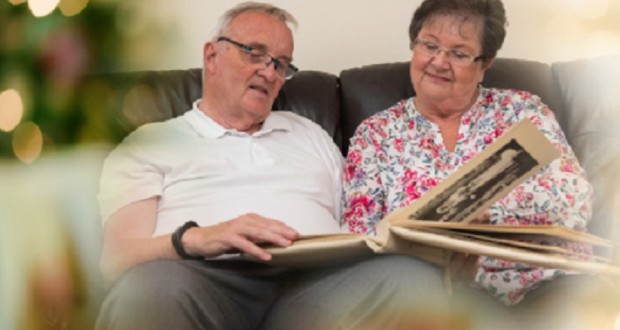At Christmas, people spending time with family or friends whom they haven’t seen for a while are likely to notice changes that could be signs of dementia. However, research results revealed on 23rd December by the Alzheimer’s Society show that many people are confused over what could be a sign of dementia and what is more likely to be general absent-mindedness.
The Alzheimer’s Society has also announced that calls to its Helpline increase by a staggering 60% after the festive season (measured from December 2014 to January 2015) as people seeking advice and support. Many callers are worried about symptoms they have seen in others which they take as possible early signs of dementia. Website traffic rises by almost 30%.
It’s important to remember that absent-minded mistakes are relatively common: almost everyone is capable of going into a room and forgetting what they have come for! It’s when a person shows confusion around the order in which day to day tasks are carried out, such as the order in which you make a cup of tea, that they could be showing signs of dementia.
Dementia affects everyone in different ways, but people should seek medical advice if they notice that they:
•struggle to remember recent events, although they can easily recall things that happened in the past;
•find it hard to follow conversations or programmes on TV;
•forget the names of friends or everyday objects;
•cannot recall things they have heard, seen or read;
•notice that they repeat themselves or lose the thread of what they are saying;
•have problems thinking and reasoning;
•feel anxious, depressed or angry about their forgetfulness;
•find that other people start to comment on their forgetfulness;
•feel confused even when in a familiar environment.
In London, the surveys showed people are reluctant to speak to a loved one about their concerns, with half (51%) saying they are not confident about starting a conversation about dementia with someone they were concerned about. This was confirmed by a separate survey of people affected by dementia across the UK which showed that over half (56%) waited at least six to twelve months after noticing dementia symptoms before seeking help. Nearly a third (30%) waited over a year or more.
Tim McLachlan, Alzheimer’s Society Operations Director for Greater London, explained: “Talking about dementia can be frightening, but seeking help early offers the best chance of getting the right support, advice and treatment sooner. We know dementia is the most feared illness for many, and it’s important we tackle confusion around what are and aren’t signs of dementia so people don’t delay getting help. Dementia can strip you of connections to the people you love, but we have many services in London that can help stop that and support you.”
Tim also pointed out that the Alzheimer’s Society runs a forum, “Talking Point”, on their website, where the public can read up on aspects of dementia and related issues. It includes material on “memory concerns and seeking a diagnosis”.
Fran Saunders, 61, from Bexley, South East London, lost her mother, Maureen Pearce, to dementia nearly three years ago and said it began with a change in her mother’s behaviour. She explained: “We first described it as attention seeking as she was behaving in a way that was out of the ordinary. She then started to rely on Dad to help her communicate and when we all went on holiday it really hit home that something was not right. Mum was relying on Dad more and more to communicate and was becoming withdrawn. When she did speak it would often be with aggression, even to simple questions.
“In hindsight, we could have acted quicker to seek a diagnosis but even when we did we kept getting dismissed by doctors who themselves didn’t recognise the symptoms. She felt isolated and this was made worse by a lack of understanding about dementia from people in the community. People would just stare and I would have to tell them she had dementia. All we wanted was people to understand.”
The Alzheimer’s Society will be raising awareness of dementia in a national advertising campaign, launching on Boxing Day, reassuring people that there is information, advice and support that can help keep people connected.
•If you are worried that you or someone you know may have dementia, go to alzheimers.org.uk/dementiasigns or call the National Dementia Helpline, 0300-222 1122. You may also find it useful to look at the Alzheimer’s Society YouTube channel: www.youtube.com/AlzheimersSociety
Christmas opening hours:
24th December – 9am-1pm
5-28th December – closed
31st December – 9am-1pm
1st January – closed
When the helpline is closed you can leave a voicemail or email (via the website). Someone from the helpline will then get back to you as soon as possible when it re-opens.
[Adverts]
 East London News A Force for the community…
East London News A Force for the community…




